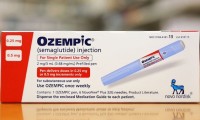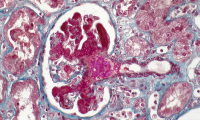-
Eli Lilly Sounds Off as Early Data Show How Gene Therapy Can Restore Hearing
- Source: drugdu
- 449
- January 26, 2024
-
Announcement on the Acceptance of Application for Clinical Trial of 20-valent Pneumococcal Polysaccharide Conjugate Vaccine
- Source: drugdu
- 289
- January 26, 2024
-
INNOCARE Pharmaceutical Co., Ltd. voluntarily discloses the announcement on the progress of ICP-723 clinical trial
- Source: drugdu
- 381
- January 26, 2024
-
Major update of the SME user guide
- Source: drugdu
- 282
- January 26, 2024
-
Gilead’s Tecartus gets revised safety demand amid FDA’s push for CAR-T boxed warnings
- Source: drugdu
- 236
- January 26, 2024
-
Reuters
- Source: drugdu
- 442
- January 26, 2024
-
FDA Calls for New Safety Warning for the Class of CAR T Cancer Therapies
- Source: drugdu
- 348
- January 25, 2024
-
Gilead’s Trodelvy Falls Short of Phase III Trial Primary Endpoint of Improved Overall Survival in NSCLC
- Source: drugdu
- 297
- January 25, 2024
-
Novel Urinary Biomarkers with Improved Diagnostic Performance to Enable Early Detection of Lupus Nephritis
- Source: drugdu
- 271
- January 25, 2024
your submission has already been received.
OK
Subscribe
Please enter a valid Email address!
Submit
The most relevant industry news & insight will be sent to you every two weeks.













